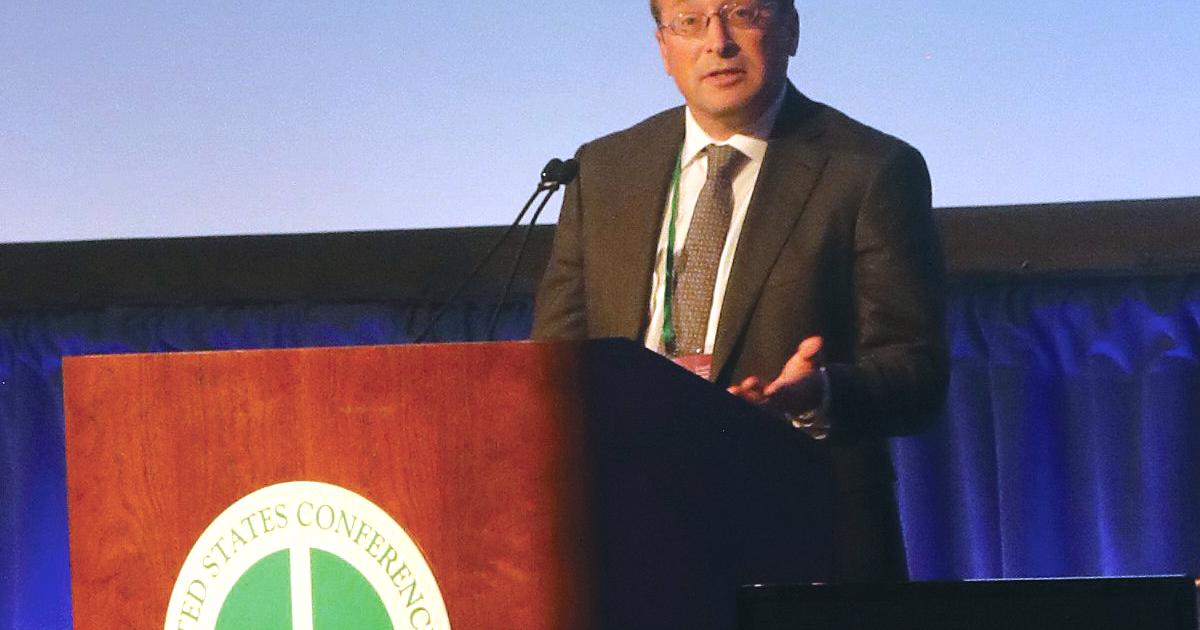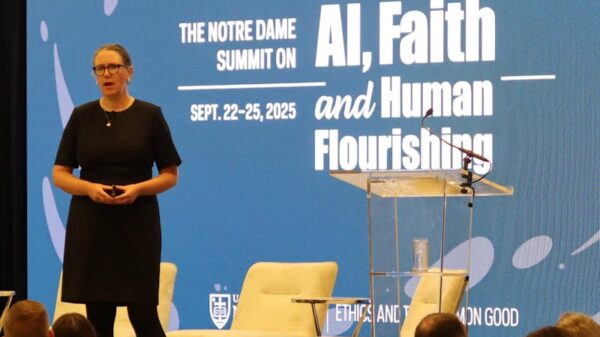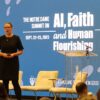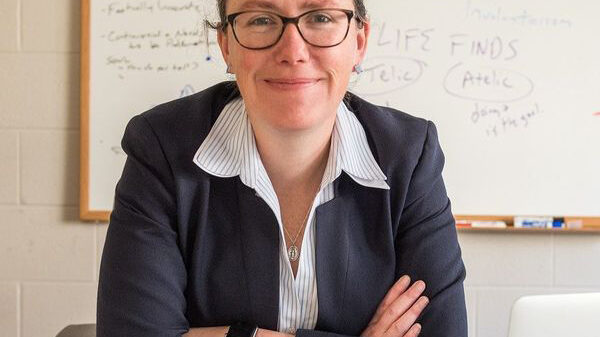Artificial intelligence (AI) presents both “great opportunities” and “great dangers,” alongside “an evangelical opportunity” for the church, according to Paul Scherz, a moral theologian and ethicist. Scherz, who is a professor of theology at the University of Notre Dame, shared these insights at the recent U.S. Catholic Bishops’ meeting in Baltimore.
Scherz, whose research explores the intersection of theology, science, medicine, and technology, is a member of the AI Research Group at the Vatican Center for Digital Culture under the Dicastery for Culture and Education. His remarks come as Pope Leo XIV places significant emphasis on the implications of AI technologies, which broadly include systems capable of mimicking human learning, problem-solving, and creativity.
During his address, Scherz noted the timeliness of the church’s engagement with AI, particularly as the Pope, echoing the concerns of his predecessor, Pope Francis, has suggested that AI could catalyze a new “industrial revolution.” Scherz highlighted the polarized views among AI experts, who predict either a “paradise of unlimited resources and new power” or an “apocalyptic vision” marked by mass unemployment and even potential human extinction due to rogue AI.
Ethical Considerations and Human Flourishing
Scherz believes that the reality of AI’s future will likely fall between these extremes. He emphasized that while AI holds the promise to enhance the human condition, it also poses significant threats to work, relationships, and social justice. “Prudent judgment” is essential to ensure that “the Catholic vision of the person in society might help guide our use of AI,” he stated, cautioning against misconceptions that AI operates in the same manner as human cognition.
At its core, Scherz explained, AI is “just statistics.” Machine learning systems, which dominate the AI landscape, employ algorithms to recognize patterns in vast datasets—ranging from Internet writings to medical records. These programs can make “probabilistic predictions” based on data patterns that are often too subtle for human analysis. He cited the example of Large Language Models (LLMs), which utilize extensive training on text from various sources to generate language-based content.
Among the practical applications of AI, Scherz pointed to the AlphaFold server, which generates three-dimensional predictions of protein structures, thus showcasing AI’s potential in scientific domains. He characterized these AI developments as “tremendous products of human creativity” with significant potential for societal benefit. However, he cautioned against labeling these systems as “intelligent” in the same way humans are, noting that AI lacks true understanding and consciousness.
Three Domains of Ethical Problems
Scherz identified three critical ethical issues associated with AI: justice, encounter, and work. He argued that AI’s implementation could negatively impact human relationships—both with others and oneself. While AI has the capacity to serve the common good, it may also reinforce existing injustices, resulting in biased outcomes. “Only by opening our hearts to others can we combat a reductionist, technocratic paradigm,” he stated, emphasizing the need for human empathy in interactions.
He underscored that even as technology positions itself as a solution, it often provides only “false comfort” and a “simulacrum of encounter.” Scherz pointed out that companies are now creating relational AIs that simulate friendship and advice, yet these technologies lack the personal presence and genuine concern that define human relationships. This can lead to “grave problems,” as authentic connections often provoke personal growth and accountability.
Scherz warned that increasing reliance on AI could compromise daily interactions that foster the solidarity essential for societal cohesion. He noted the risk of AI applications replacing human labor, which threatens not just individual job security but also broader economic and social flourishing, aligning with the Catholic teaching on the value of labor and its role in human development.
He highlighted three Catholic ministries—health care, education, and religious resources—where AI may be integrated. However, he reiterated that algorithms cannot replace the human touch necessary for meaningful healthcare, education, or spiritual guidance. “This is actually a moment of opportunity,” he concluded, as society confronts fundamental questions about what it means to be human.
A version of this story appeared in the November 23, 2025, issue of The Catholic Register with the headline “Theologian warns against AI’s false comforts.”
See also Microsoft AI CEO Mustafa Suleyman Critiques Cynicism Surrounding AI Advances
Microsoft AI CEO Mustafa Suleyman Critiques Cynicism Surrounding AI Advances AMD Surges 99% in 2025, Outpacing Nvidia and Broadcom in AI Chip Market
AMD Surges 99% in 2025, Outpacing Nvidia and Broadcom in AI Chip Market Yungblud Sparks Debate on AI’s Impact at Future of Music Event with THR and Frost School
Yungblud Sparks Debate on AI’s Impact at Future of Music Event with THR and Frost School Disney Partners with Animaj to Cut Animation Production Time by 80% Using AI Tools
Disney Partners with Animaj to Cut Animation Production Time by 80% Using AI Tools



































































